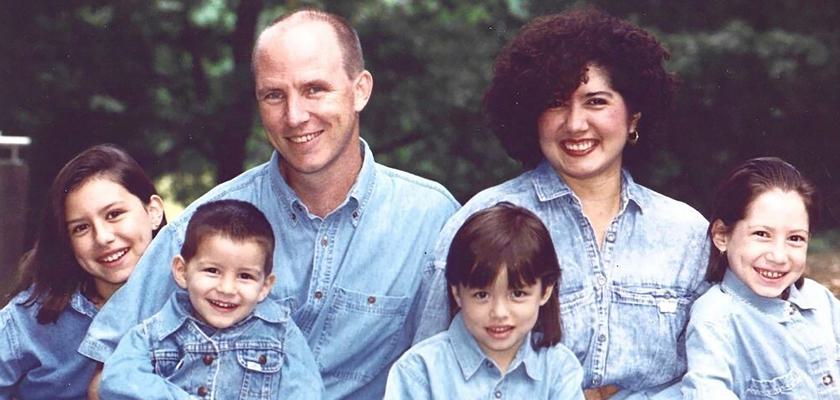The news was jarring when it made it back to the States on June 18, 1999. An International Mission Board missionary, his daughter and two summer missionaries had drowned just off the coast of southern Mexico.
One of those summer missionaries was 19-year-old Joy Murphy, the daughter of the late Allan Murphy (then pastor of North Shelby Baptist Church in Birmingham) and his wife Mary. The young student was fluent in Spanish and had a heart for missions, and after her funeral her family and friends began a long grieving process.
So did Gloria Sloan-Castellanos, who lost her husband, Gary Sloan, and 11-year-old daughter, Carla, that day. They had only been on the missions field six months when the accident happened.
“For me, it was a multiple grieving process,” said Sloan-Castellanos, who married Edwin Castellanos, a pastor in El Salvador, a few years after Gary’s death and after retiring from the IMB.
Not only did she grieve her family, she grieved the loss of Joy Murphy and John Weems, the other student who died that day. She felt the weight of their parents having entrusted her with their care.
God at work
But what she found as the days and years went by is that God did a work from that difficult situation, starting with the day her loved ones’ bodies lay on the beach.
That day the Sloan family and five summer missionaries were celebrating the birthday of the second-oldest Sloan child, Alyssia, at the beach. Some of the group found themselves caught in an undertow that was nearly impossible to fight. They tried to save themselves and help the young girl, but in the end, Carla, her father and two of the students lost their lives.
Sloan-Castellanos said when she first realized what had happened, the pain hit her so hard she couldn’t move and could barely breathe. But then she prayed for God to help her.
“In that moment I felt God’s presence like I’ve never felt it before,” she remembered.
And then she said she began to see the people around her with eyes only God could give her.
“There were a lot of people gathering around us. I had not noticed that until I raised my head and lifted my eyes and saw us surrounded, and in that moment it was that compassion that Jesus felt when He saw the multitudes lost without a shepherd. It just moved me,” Sloan-Castellanos recalled. “I felt such a great compassion for the people around me because even though my loved ones were dead, laying there right in front of me, I knew exactly where they were.”
Being a witness
And she didn’t know that about the people who had gathered, she said, so she prayed for God to help her be a good witness in that moment.
“I stood up and told the people around me, ‘This is my husband, this is my daughter and this is my friend,’” Sloan-Castellanos recalled. “‘We got up this morning so happy, wanting to celebrate a birthday. But here we are. We had a great tragedy today. But you know, that’s what the Bible says. Our lives are so fragile. It’s like this mist that rises up in the morning, and all of a sudden it’s gone.
“So we didn’t get up this morning expecting to have a death. But here we are. But I know that [they] gave their lives to Jesus. They’re in the presence of their Lord and Savior.”
And she shared the gospel.
“I said, ‘I’m sure you got up this morning not wanting to have a tragedy in your life, but we don’t know what’s going to happen,’” Sloan-Castellanos told the group. “‘What if you were the ones laying on the sand and not them? Where would your soul be?’”
Asking about Jesus
The next day as pastors from the area gathered on the beach to be there when Weems’ body was recovered, people came from all over to ask questions about Jesus. They couldn’t forget the words they’d heard from the bereaved woman on the beach the day before.
“At that beach God ignited a revival,” Sloan-Castellanos recalled. “People started coming to know Christ. I didn’t make an invitation, but everybody else did. And there’s a church there that wasn’t there because all these people started coming to know Christ.”
Responding to tragedy
Hannah Carter, one of the student missionaries who survived, said her life also is different because of Sloan-Castellanos’ response to such profound tragedy — not only from watching her bold witness but also seeing how she embraced suffering as part of the expected Christian life.
“I’m really grateful for Gloria’s faith — also the ripple effect. I think her response influenced my response and others’. It matters,” said Carter, who went on to serve as an IMB missionary then a biblical counselor.
The other students — David Pitts and John Soard — went on to teach English as a Second Language and serve as an Episcopal vicar, respectively. Sloan-Castellanos served 13 years in Mexico, then five years as a missionary mobilizer in Honduras before retiring from the IMB and marrying Castellanos.
As she was leaving Mexico after her ministry there she said a church planter she had helped train told her he was grateful — if her husband and daughter had not died, his family would have never known about Jesus. Their hearing the gospel came as a direct result of that day at the beach.
“First came my human reaction — if God had given me a choice, I probably would’ve chosen my family over his family. That’s just the way it is,” Sloan-Castellanos admitted. “But He didn’t.
“And then came the more spiritual reaction and I thought, ‘Wow, how amazing God is and how sovereign. His love stretches out so much that when I was at that beach losing my loved ones, He had in His mind and heart Margarito’s family here so many miles away from that beach.’”










